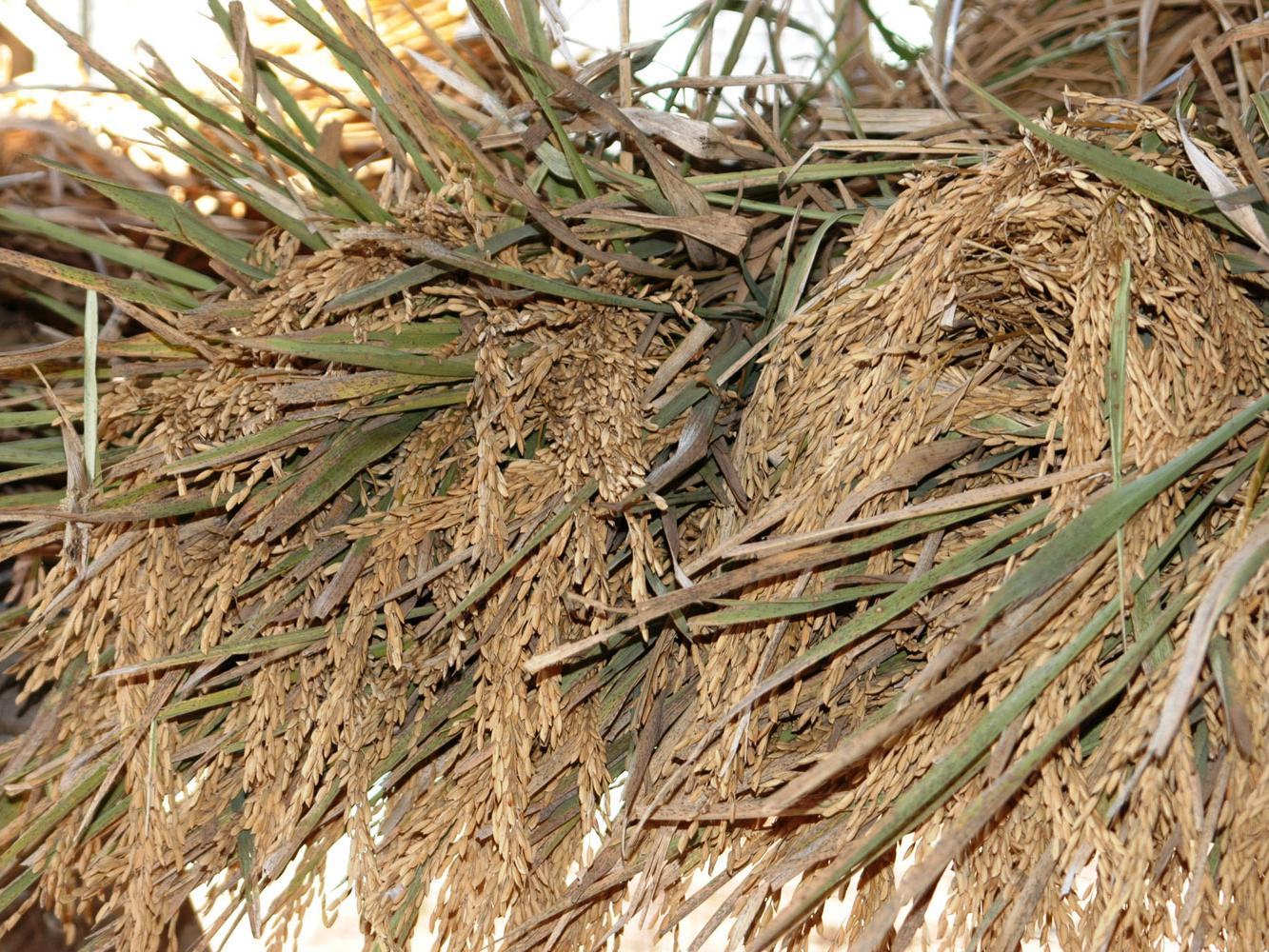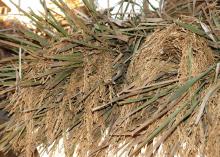Information Possibly Outdated
The information presented on this page was originally released on August 26, 2011. It may not be outdated, but please search our site for more current information. If you plan to quote or reference this information in a publication, please check with the Extension specialist or author before proceeding.
Low rice yields expected from early August heat
MISSISSIPPI STATE – The yield of early-planted rice looks good so far, but only time will tell how seriously the high heat of early August will cut into yields from later-planted fields.
Nathan Buehring, rice specialist with the Mississippi State University Extension Service, said harvest began in mid-August and will proceed at full speed until completed, probably by the first week of October.
“Those who have a good feel for yield have been pleased with what they’re harvesting so far,” Buehring said. “It won’t be a bumper year, but we should be average.”
The big question comes from rice planted from the end of April to the first of May. Much of that rice was in the pollinating stage when temperatures hit as high as 106 during the day and didn’t dip below 80 degrees at night the first week of August. Ideal temperatures for rice pollination are below 95 degrees during the day and 75 at night.
“We have a lot of blank kernels because the rice is not capable of pollinating when temperatures are that high,” Buehring said. “Rice usually pollinates by 9 to 10 a.m., and when nighttime temperatures are above 80 degrees, it doesn’t take long to get above 95 again.”
Although producers in the north Delta around Tunica and Quitman counties had some delays getting fields planted because of excessive rains in April, heat was the biggest challenge of the growing season.
“For the most part, everybody got their crop planted on time, and it has looked good and grown well through the year,” Buehring said. “The heat will plague us a little more than we hoped, but there was not anything these producers could have done to prevent it.”
Mississippi growers planted about 175,000 acres of rice this year, down about half from 2010. There was an over-supply of rice from too much rice produced the year before, driving prices down at planting.
“Producers could get a better price guaranteed on soybeans and corn, and rice wasn’t offering that profit potential at planting,” Buehring said.
The market price for rice is attractive now, and Buehring expects the state’s acreage to rebound to a more normal 200,000 to 250,000 acres in 2012.
John Michael Riley, Extension agricultural economist, said September Rough Rice Futures closed Aug. 24 at $16.86 per hundredweight. Prices rose over the summer before falling in later July, then rebounding in August.
“The U.S. rice supply is expected to be down 23 percent compared to 2010,” Riley said. “The rise experienced in July was a result of the uncertainty over where production would be because flooding across the Midsouth delayed planting.
“The extreme heat that will potentially decrease rice quality likely caused prices to increase in August. Also, the rise in competing grain prices, like corn and wheat, are providing support to rice prices,” he said.
For 21 years, Delta Rice Promotions has hosted the annual rice tasting luncheon to celebrate September as national Rice Month. This year’s event will be held in Cleveland at the Walter Sellers Coliseum at Delta State University.
Three Delta chefs will hold a rice cook-off at 10 a.m. Sept. 16. Rice tasting will begin at 11 a.m. and conclude at 1 p.m. More than 300 rice dishes will be prepared by area restaurants and cooks. Miss Mississippi, Mary Margaret Roark, will sing the national anthem, and exhibitors will be on hand to complete the event. Tickets are $3 and can be purchased at the door.
For more information, contact Laura Giaccaglia, Bolivar County Extension director, at laurajg@ext.msstate.edu or (662) 843-8362.






